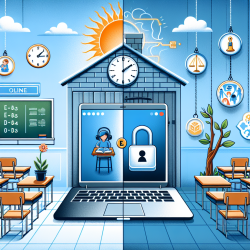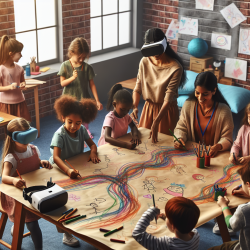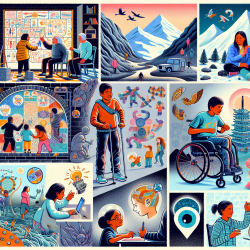Introduction: The Global Education Crisis
The COVID-19 pandemic has disrupted education systems worldwide, leaving practitioners scrambling to find effective solutions. According to the research article, "Collective impacts on a global education emergency: The power of network response," the Inter-agency Network for Education in Emergencies (INEE) has played a pivotal role in supporting education during this crisis. This blog will explore how practitioners can leverage these insights to enhance their skills and create better outcomes for children.
Understanding the Power of Network Response
The INEE has been instrumental in curating resources, providing technical guidance, and advocating for education as a priority during the pandemic. Their efforts have focused on maintaining educational continuity, particularly for children in crisis and conflict contexts. The research highlights several key strategies that practitioners can adopt:
- Resource Sharing: Utilize open-access materials and tools provided by INEE to support equitable remote learning.
- Technical Guidance: Implement INEE's guidance on psychosocial support and teacher well-being to ensure a holistic approach to education.
- Advocacy: Engage in advocacy efforts to prioritize education in emergency responses and secure necessary funding.
Implementing Effective Strategies for Practitioners
Practitioners can improve their skills by integrating the following strategies into their practice:
- Leverage Technology: Embrace online platforms and tools to facilitate remote learning and maintain educational continuity.
- Focus on Well-being: Prioritize the mental health and well-being of students and educators by providing psychosocial support and resources.
- Collaborate with Networks: Join networks like INEE to access resources, share knowledge, and build capacity through webinars and community support.
Encouraging Further Research
While the INEE has made significant strides in supporting education during the pandemic, there is still much to learn. Practitioners are encouraged to conduct further research on:
- Innovative Remote Learning Solutions: Explore new technologies and methodologies to enhance remote learning experiences.
- Long-term Impacts: Investigate the long-term effects of school closures on child development and well-being.
- Preparedness for Future Crises: Develop strategies to improve preparedness and response for future educational emergencies.
Conclusion: A Call to Action
As we navigate the challenges of the global education crisis, it is crucial for practitioners to stay informed and proactive. By implementing the strategies outlined in the research and engaging in further research, we can create better outcomes for children and ensure their right to education is upheld.
To read the original research paper, please follow this link: Collective impacts on a global education emergency: The power of network response.










